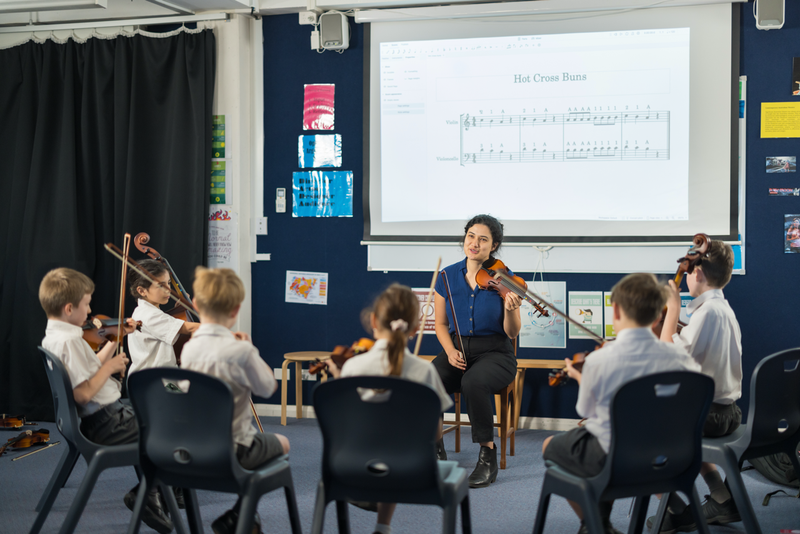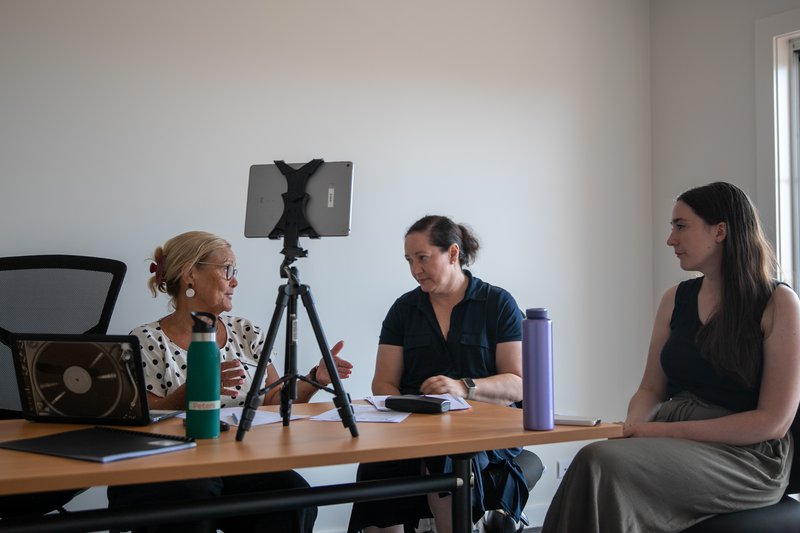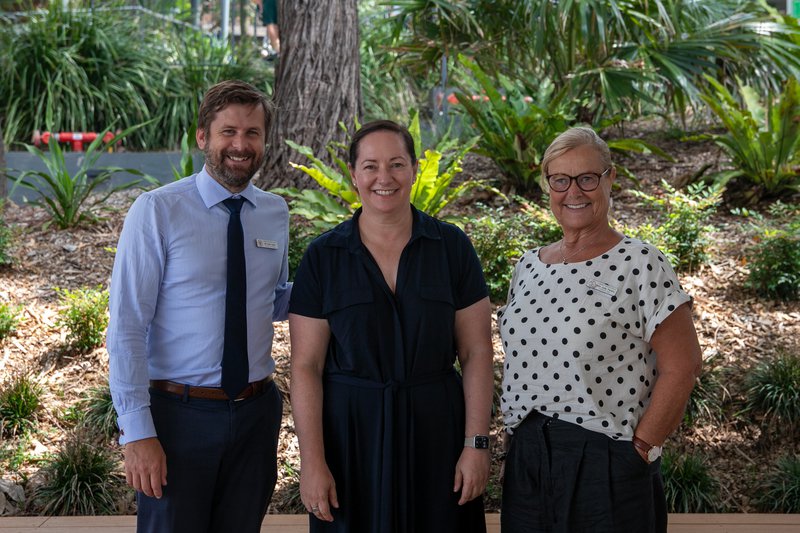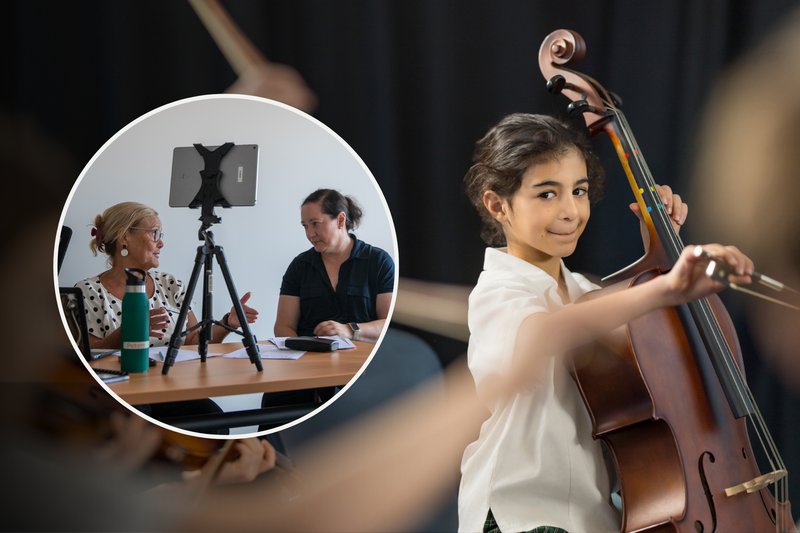ICS Director of Primary Mr Caleb Jones highlights the growth of the Primary Strings Program, inspired by Dr. Anita Collins' research on music education's benefits. Dr. Collins recently visited ICS as part of her research, collaborating with our expert music staff to explore music's impact on children's cognitive development.
As we tune in to the start of the year, our Primary teaching staff have been considering what it truly means to be a Christ-centred learning community. Our staff have been focusing on how we can best tune in to the relationships and individual needs of the students in our care to ensure the students feel belonging and a sense of safety.
This thoughtful approach extends to our Primary Strings Program. Beginning in 2021, 38 Year 3 students pioneered our innovative music and literacy program. This year, the program continues to thrive and offer all students in Years 2, 3, and 4 the opportunity to learn the violin or cello with expert tutors as part of their regular classroom learning.
Each week, students participate in one small group lesson and one whole class lesson. As students progress to Years 5 and 6, they have the option to join a small group ensemble to further their musical journey. The Primary Strings Program now sees nearly 160 students learning a violin or cello in 2025.
This program is inspired by the esteemed work of Australian music educator Dr Anita Collins, whose research highlights the profound impact of music education on literacy, numeracy, and emotional regulation.
Dr. Collins’ research reveals that when musicians play their instruments, their brains are highly active, engaging multiple areas simultaneously. Listening to music alone activates various parts of the brain, but creating music takes this to another level, providing a full-brain workout. This activity strengthens the connections between different brain regions, allowing information to travel more efficiently and through diverse pathways.
Learning a musical instrument involves nearly every major processing centre in the brain, particularly the visual, auditory, and motor centres. The complex interplay of these functions not only enhances musical abilities but also translates to improved skills in other areas of life. Additionally, musicians often exhibit enhanced executive function, which includes better emotional processing and social capabilities. This is partly due to the discipline required to learn an instrument and the social interactions involved in playing music, such as those experienced in our strings groups.
Dr. Collins’ research also found that the neural pathways stimulated by music are the same pathways needed for foundational language and literacy skills. In this way, music can serve as a positive primer for literacy and language learning.
- Music helps our brains to connect and synchronize, with something as simple as singing helping us to trust and feel safe.
- Before the age of around 7, music learning aids the connectivity of the auditory, visual, and motor cortices.
- It improves connectivity and symbolism, enhances synaptic speed, and fosters divergent and creative thinking.
- Music also enhances our executive function skills, enabling us to problem-solve, manage stress, communicate effectively, and grow into our adult selves.
- It allows us to communicate and understand what it means to be empathetic, kind, and productive.
- Music helps human development enormously and, if taught well and effectively, has little chance of causing harm.
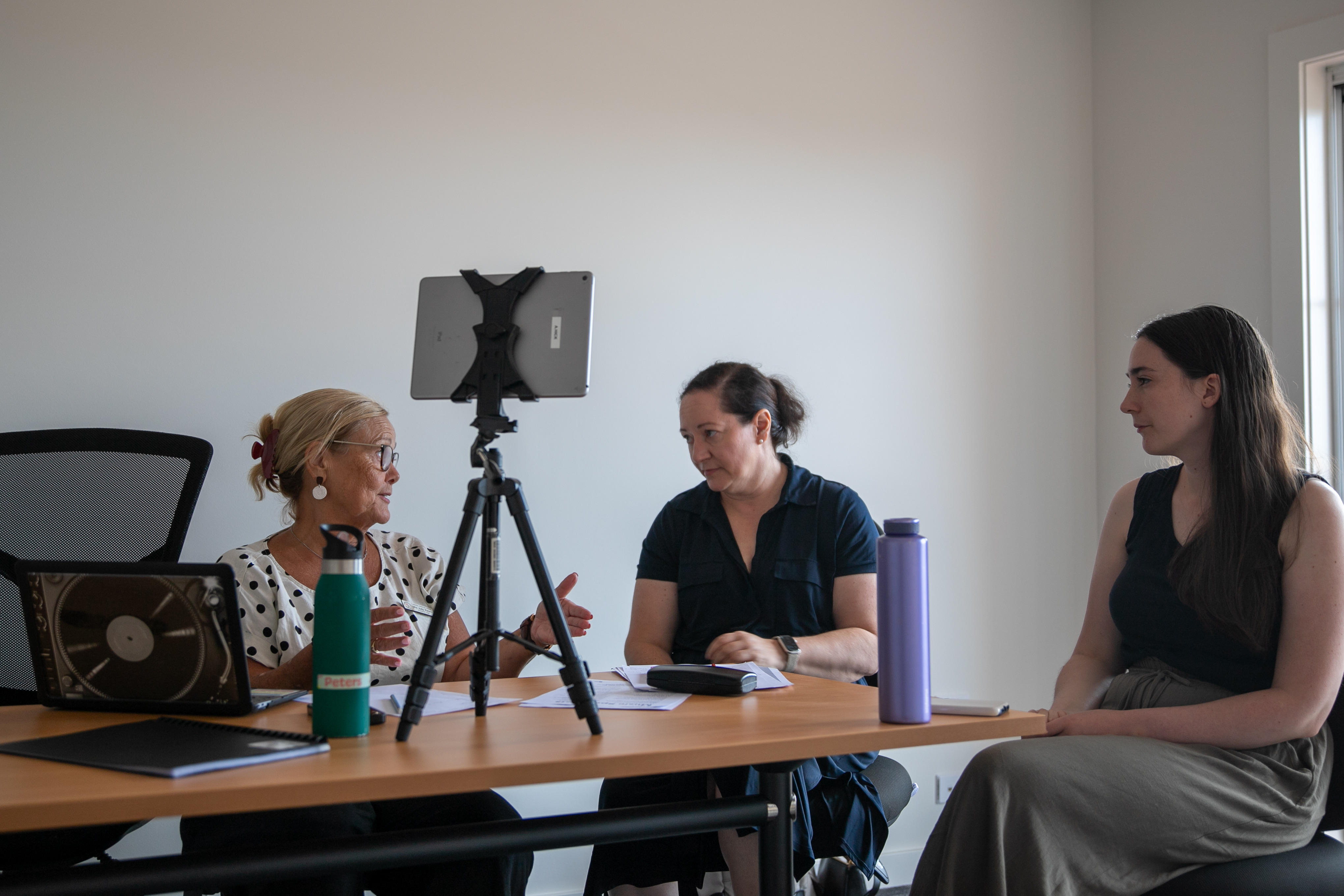
Last week, Dr. Anita Collins visited ICS to pilot a beat-keeping screener to explore whether music can be used to screen for children’s language, social, and emotional development. She collaborated with Mrs. Judy Peters, our K-6 Music Teacher, and Miss Emma Newby, one of our expert strings tutors, to see how students’ ability to keep a beat and maintain a rhythm could provide insights into their cognitive development. Anita has given us incredible insights into what makes the students at ICS tick.
We are thankful for the provision of this program, its dedicated tutors, and the God-given ability to listen and learn through music. Learning the violin is more than just learning to play an instrument; it brings a multitude of benefits that positively impact various aspects of learning and personal development.
It is truly a transformational experience shaping the students to be more curious about God’s world, more courageous to step out and shape culture and more compassionate as they respond to the needs of those around them.

Mr Caleb Jones
Director of Primary
